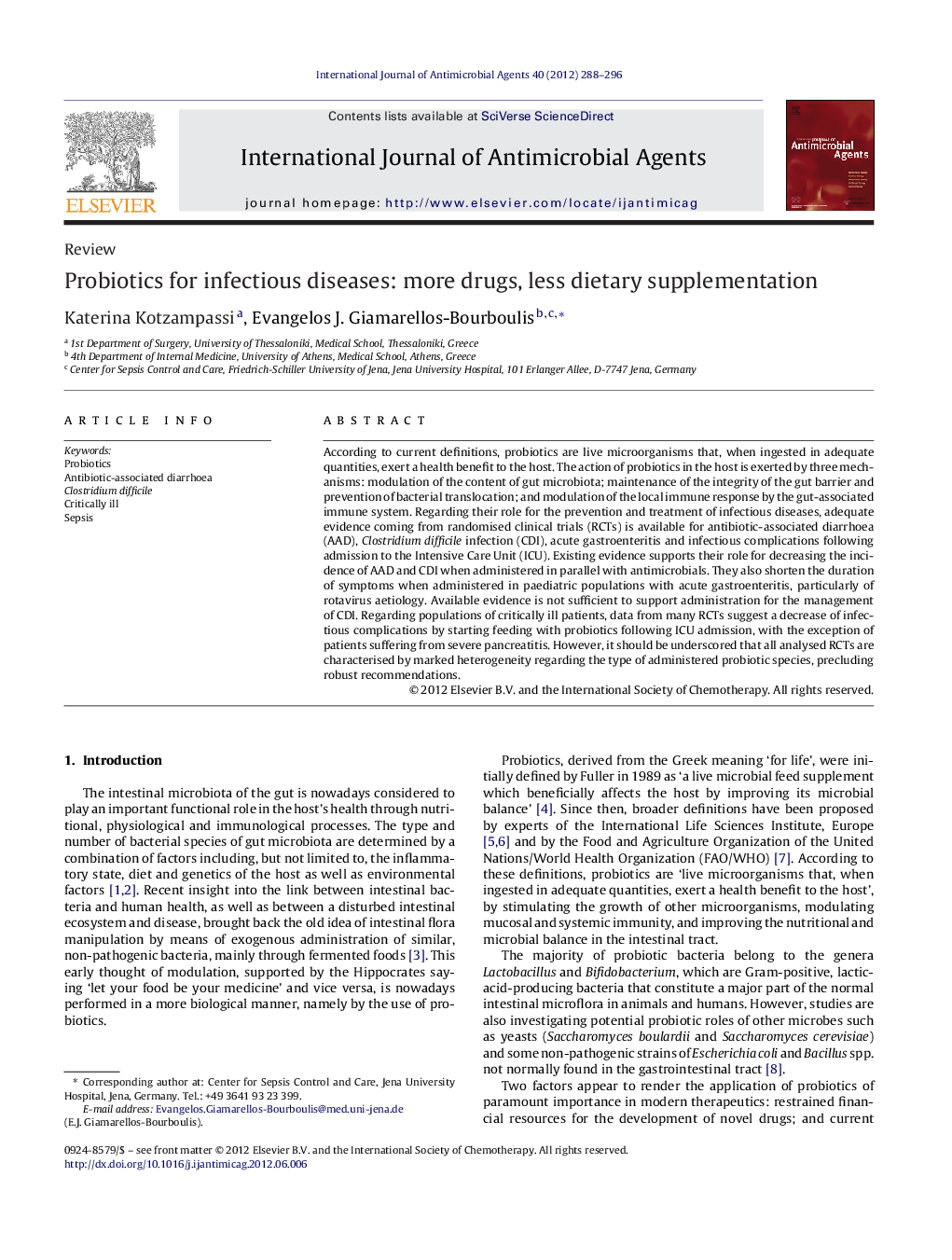| Article ID | Journal | Published Year | Pages | File Type |
|---|---|---|---|---|
| 3359279 | International Journal of Antimicrobial Agents | 2012 | 9 Pages |
According to current definitions, probiotics are live microorganisms that, when ingested in adequate quantities, exert a health benefit to the host. The action of probiotics in the host is exerted by three mechanisms: modulation of the content of gut microbiota; maintenance of the integrity of the gut barrier and prevention of bacterial translocation; and modulation of the local immune response by the gut-associated immune system. Regarding their role for the prevention and treatment of infectious diseases, adequate evidence coming from randomised clinical trials (RCTs) is available for antibiotic-associated diarrhoea (AAD), Clostridium difficile infection (CDI), acute gastroenteritis and infectious complications following admission to the Intensive Care Unit (ICU). Existing evidence supports their role for decreasing the incidence of AAD and CDI when administered in parallel with antimicrobials. They also shorten the duration of symptoms when administered in paediatric populations with acute gastroenteritis, particularly of rotavirus aetiology. Available evidence is not sufficient to support administration for the management of CDI. Regarding populations of critically ill patients, data from many RCTs suggest a decrease of infectious complications by starting feeding with probiotics following ICU admission, with the exception of patients suffering from severe pancreatitis. However, it should be underscored that all analysed RCTs are characterised by marked heterogeneity regarding the type of administered probiotic species, precluding robust recommendations.
